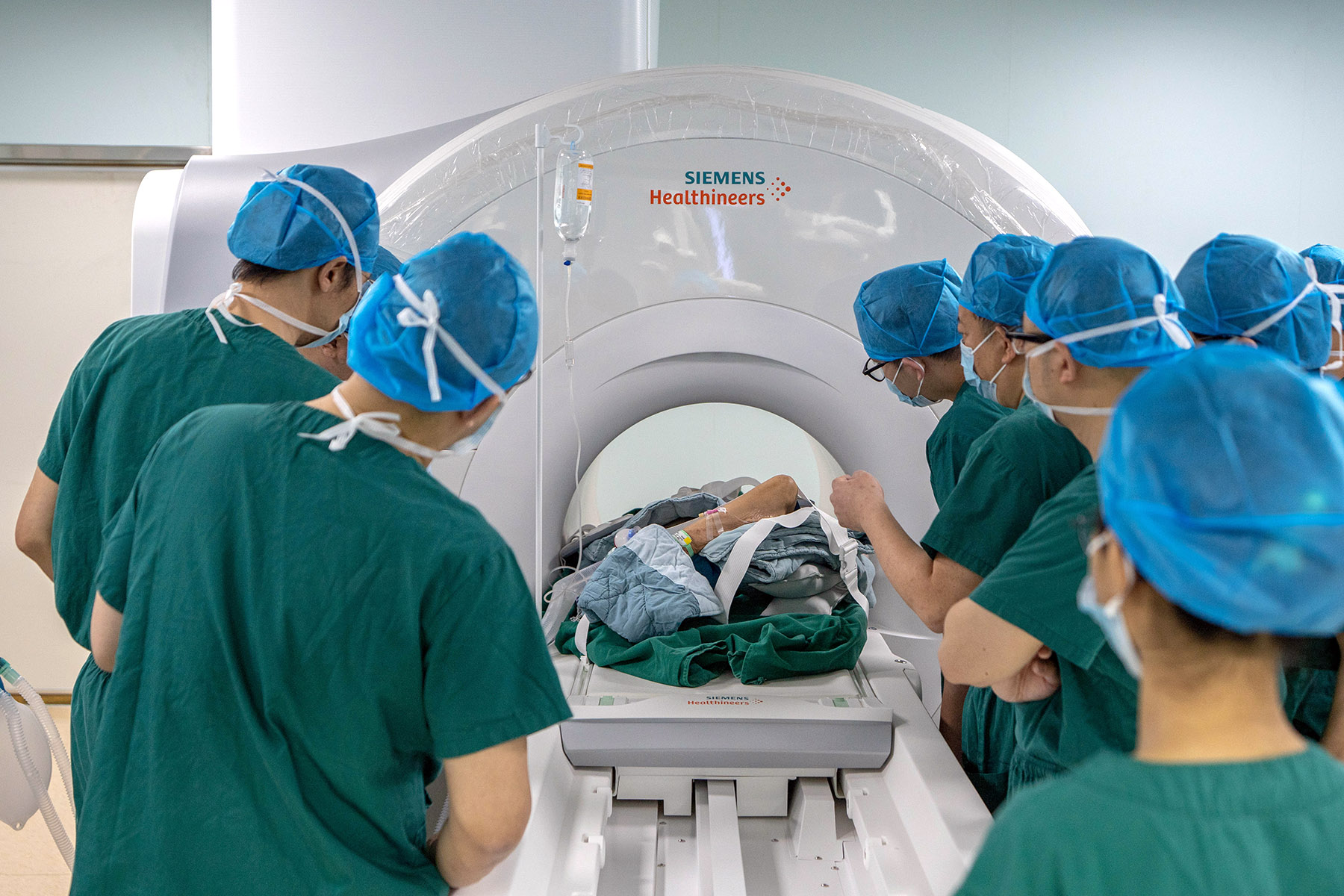Tropical island province sees surge in global business, bigger industrial draw

Hainan Free Trade Port is accelerating its transformation into a global trade and services hub, with preferential tax and zero-tariff policies fueling double-digit growth in industries ranging from aircraft maintenance and engine repair to agro-processing, duty-free retail and healthcare.
As Hainan province prepares to launch island-wide special Customs operations in December, officials report surging international business and expanding industrial ecosystems that are drawing in companies.
Since its launch in 2022, the one-stop aircraft maintenance base in the FTP has serviced more than 2,300 aircraft, according to company officials. The facility has performed full-body painting for over 270 planes and repaired 58,000 aviation components, making it a cornerstone of the local aviation industry.
READ MORE: Hainan FTP's independent customs operation set to boost market vitality
Policy support has been instrumental. Haikou Customs said it has backed the sector through temporary import and export repair policies. Under these measures, 100 aircraft have been repaired, generating benefits worth 2.6 billion yuan ($357 million) and tariff exemptions of 38 million yuan.
The base leverages exemptions from import duties for inbound aircraft repairs, flexible Customs rules and tax breaks on key parts to lower costs and turnaround times for foreign clients. These advantages have attracted more than 100 aircraft from over 20 overseas carriers, including Qatar Airways and Iberia Airlines.
"We're seeing a lot of loyal customers return, and many new clients are coming in as well," said Yuan Yong, Party secretary of Grand China Aviation Maintenance Co, a unit of Hainan Airlines Aviation Technic Co. Their integrated service model, which combines repairs and painting in one location, avoids costly ferry flights and improves efficiency, he said.
Hainan's aviation maintenance hub has also worked to streamline its supply chain. It now stocks over 2,200 types of parts — nearly 18,000 items in total — dramatically shortening supply times, said Liu Jia, general manager of the base's procurement management department.
"This has shortened our support cycle to within one week and greatly enhanced the efficiency of our entire aviation materials support," Liu said.
The system allows overseas suppliers to store parts in a bonded "aviation materials supermarket".Airlines only pay once parts are used, turning the traditional "search for parts" model into one where "parts wait for people". As a result, wait times for components have been cut by two to three months.
Cost savings are another major draw. Yang Wenbo, deputy director of the base, said preferential FTP policies — such as waiving deposit requirements for inbound aircraft and allowing bonded materials — have significantly lowered expenses.
"These comprehensive policies can save customers 10 to 15 percent on maintenance costs. The number of overseas aircraft we serviced in the first half of this year already nearly reached the total for all of last year," Yang said.
Wang Haiye, chairman and general manager of Haikou Airport Aircraft Engineering Co, said: "By building a complete maintenance ecosystem, we attract more planes to Hainan for service, which in turn encourages airlines to open new routes here."

The momentum extends to high-end engine repair. Haikou Engine Service Co Ltd has earned licenses from both the Civil Aviation Administration of China and the US Federal Aviation Administration, and joined GE Aviation's global network.
The company, staffed by 220 employees, has already taken on 26 engine projects.
"It usually takes 120 days to repair one GEnx-1B engine. This year, our target is 15 engines, and we plan to double that to 30 next year," said Wu Dongyang, president of Haikou Engine Service. The facility aims to eventually repair 60 engines annually, generating an output value of more than 3 billion yuan.
Industry officials said the cluster of facilities is forming a comprehensive industrial chain that includes regular aircraft maintenance, engine repair, component repair and painting. Shan Jinxiao, director of the equipment industry and science and technology sector at the Hainan Provincial Department of Industry and Information Technology, projected that the sector's output will grow by over 30 percent this year compared to 2024.
Beyond aviation, Hainan's "value-added tariff exemption policy" is fueling manufacturing expansion. Under the scheme, imported goods are exempt from tariffs if at least 30 percent of their value is added through local processing.
AUSCA International Oils and Grains, based in the Yangpu Economic Development Zone, has been a key beneficiary. Since production began in 2021, the company has saved about 300 million yuan in tariffs, according to chairman Zhang Hui. AUSCA imports soybeans and other raw materials from Brazil and Canada for processing and domestic sales.
"Since our first year of operation, we have accumulated tariff reductions of about 300 million yuan," Zhang said. The policy has since expanded to other sectors.
"It now extends to the health food industry, and in seafood, processing has shifted from primary to deep processing with higher added value," said Feng Nan, deputy director of the Yangpu Economic Development Zone's administrative committee.
As of August, the policy generated 9.52 billion yuan in domestic sales in Yangpu, with tariff exemptions of 737 million yuan — representing over 80 percent of the provincial total.
AUSCA's growth underscores the policy's impact. "We achieved an output value of 1 billion yuan in our first year," said Cao Youhua, the company's deputy general manager. "Our output value reached about 6 billion yuan in 2024 and is projected to rise to 8 billion yuan in 2025."
Hainan officials said the FTP's policy toolkit is maturing, with expanded zero-tariff measures, improved trade facilitation and strengthened rule-of-law safeguards.
According to Haikou Customs, since 2020, the three "zero-tariff "schemes — covering raw materials, self-use production equipment, and operational transport vehicles and yachts — have been gradually expanded, now spanning "sea, land and air".
As of this year, the cumulative import value of zero-tariff goods has reached 25.5 billion yuan, with 4.9 billion yuan in tax breaks benefiting 558 enterprises.
ALSO READ: Hainan making big strides with satellite tech
Meanwhile, processing value-added tariff exemptions have been extended island-wide. To date, 129 enterprises have registered, with 51 actively conducting business, generating a cumulative 10.9 billion yuan in domestic sales and tariff exemptions of 850 million yuan. Beneficiary industries include pharmaceuticals, seafood and jewelry.
Since the rollout of new duty-free shopping rules, Customs authorities have supervised over 200 billion yuan in duty-free sales, 30 million duty-free shoppers and 247 million items. The policy has reinforced the province's ambition to become an international tourism consumption hub.
At Bo'ao Lecheng International Medical Tourism Pilot Zone, a "special medical zone" has been established to facilitate zero-tariff imports of medicines and medical devices. By mid-2025, the zone had imported 225 million yuan worth of such products, enjoying 29.47 million yuan in tax breaks.
Provincial officials said these advances are part of broader efforts to link domestic and overseas markets while attracting high-quality resources to Hainan.
Ma Mengmeng contributed to this story.
Contact the writers at wangzhuoqiong@chinadaily.com.cn


